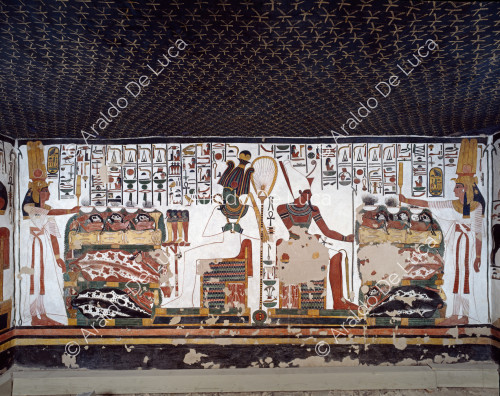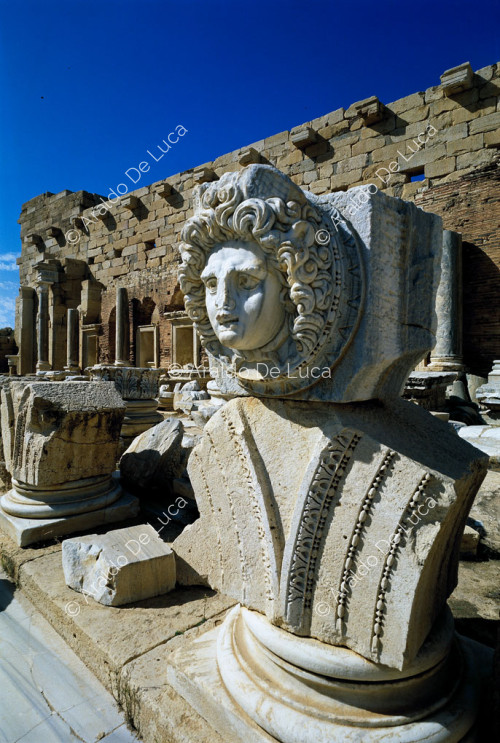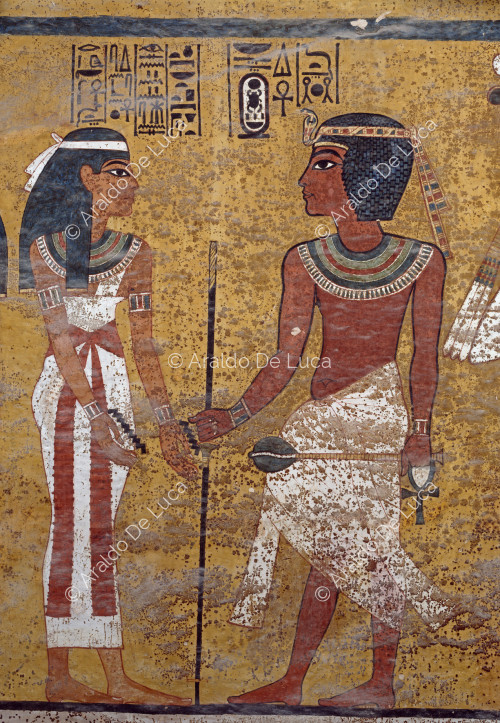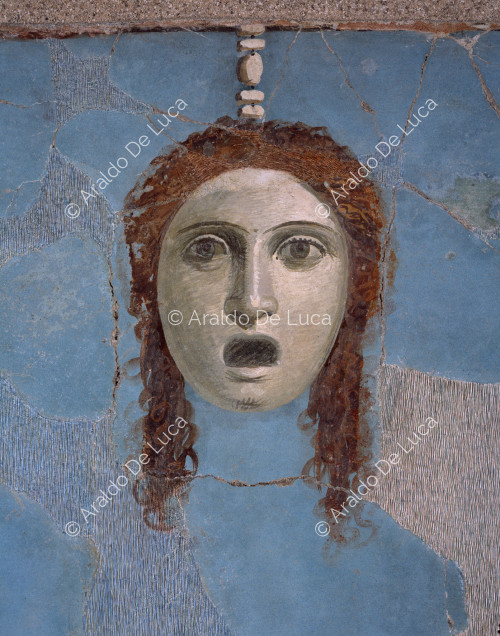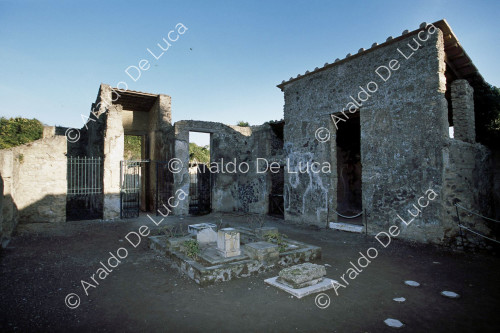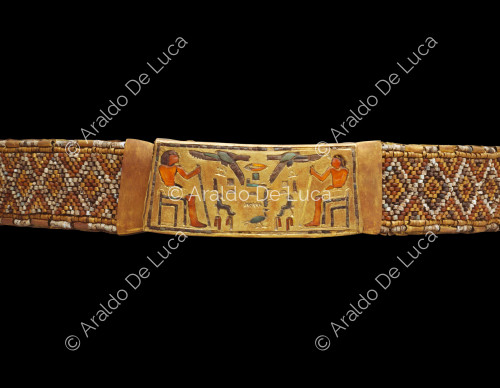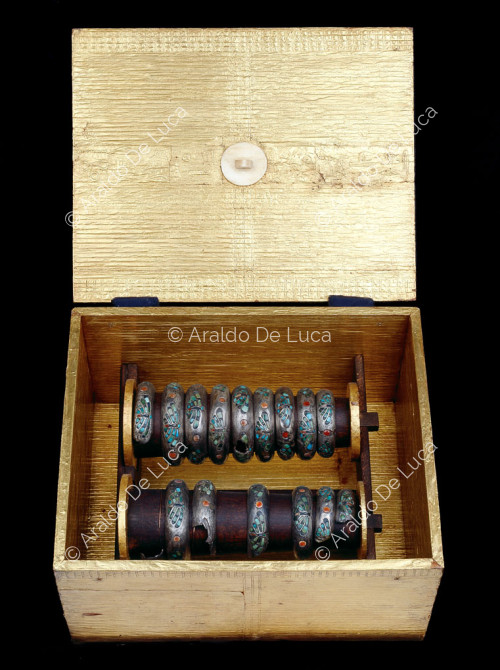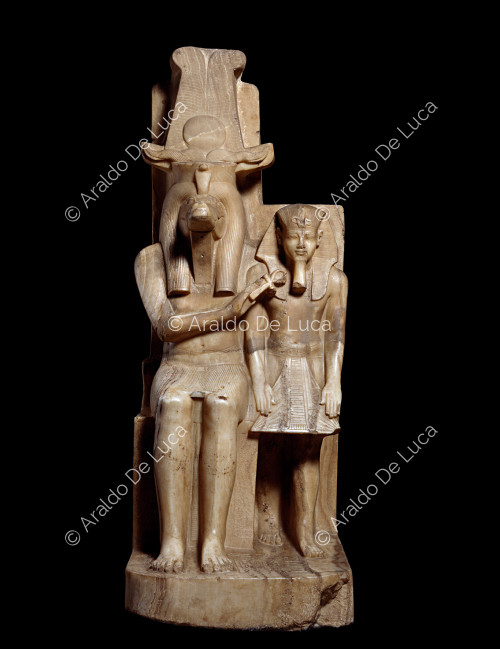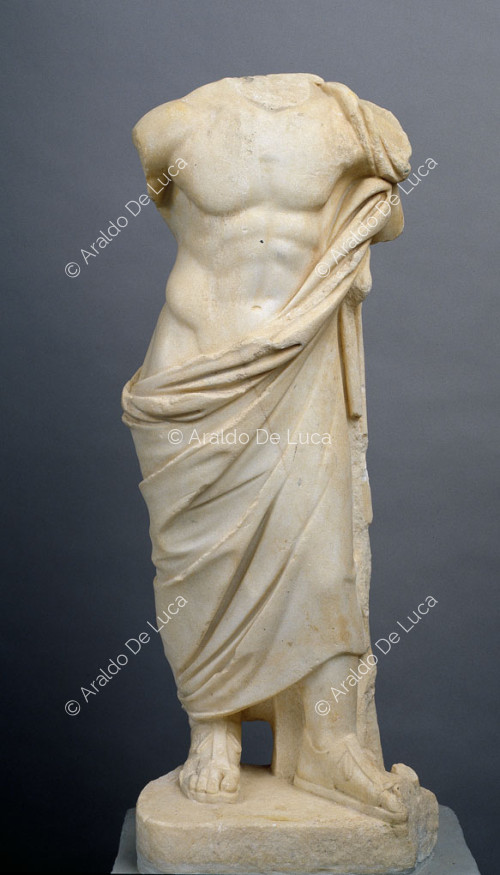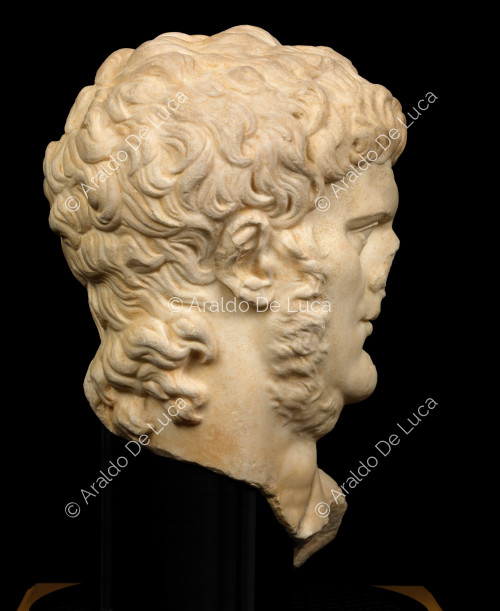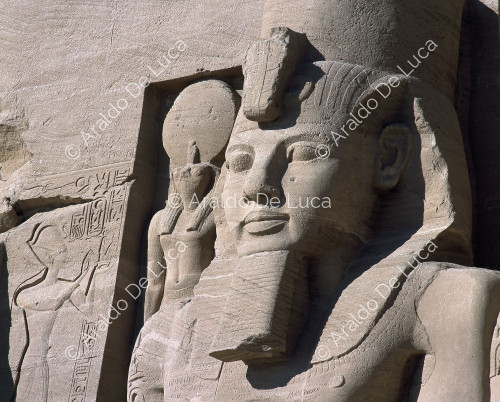Nefertari before Osiris and Atum
The scene consists of two mirrored but different images separated in the middle by a fan. In both scenes Nefertari faces a god seated on a throne. The queen is dressed in a long, semi-transparent tunic, knotted in the middle by a red ribbon. On her head she wears the Nekhbet headdress, exclusive to royal women and goddesses, consisting of the Nekhbet vulture clutching the shenu symbol of eternity, a golden crown for the great wives of the pharaohs and surmounted by two long golden feathers in the middle of which is a small solar disc. The queen holds the sceptre sekhem in her right hand, a symbol of power and authority. The queen and the god are separated by a pile of offerings on top of which are jars from which smoke comes out. The scene on the left shows mummiform Osiris seated on a throne. He clutches the emblems of power and wears the Atef crown and a false beard. His skin is green to recall his connection with nature and the flood. In front of him, on a stand, are the Four Sons of Horus. The scene on the right shows the god Atum, solar god of Heliopolis, seated on a throne and dressed in a white kilt and a green tunic. He wears the crown of Upper and Lower Egypt. In his left hand he holds the sceptre was, in his right the symbol of life ankh.


